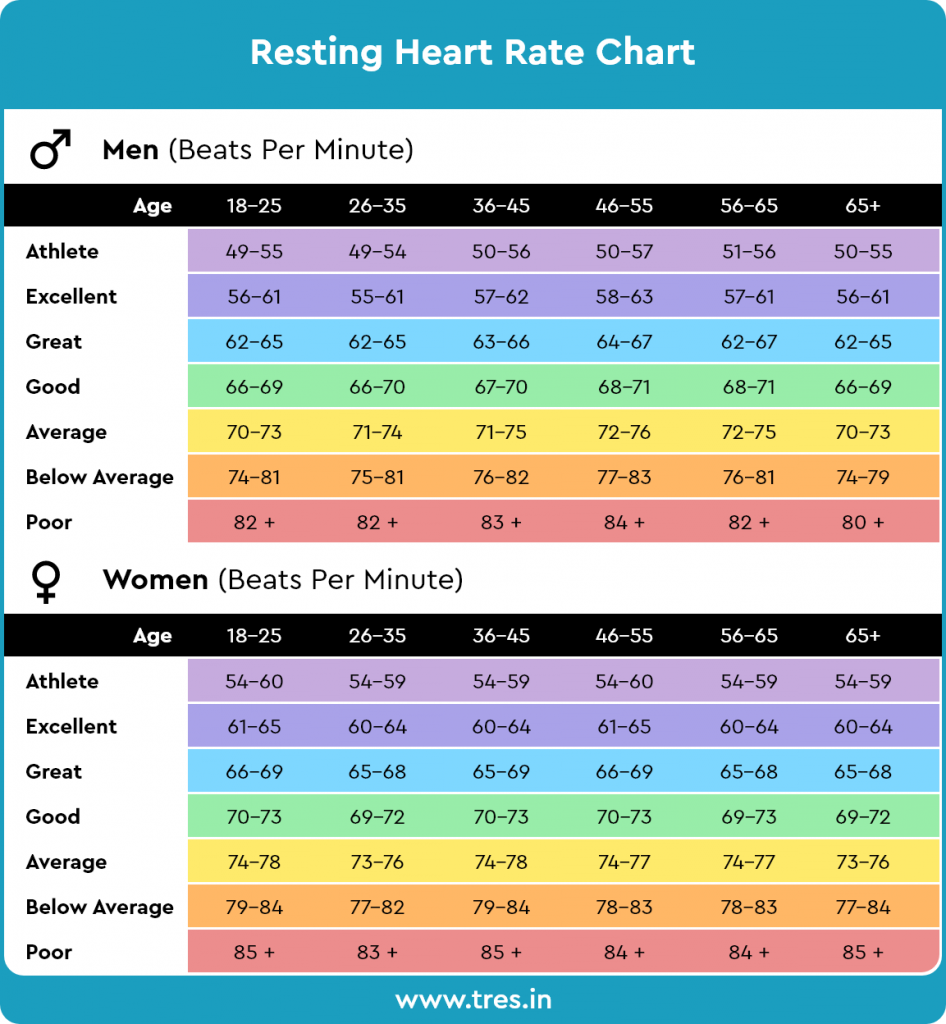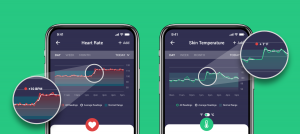Your Resting Heart Rate (RHR) is the number of times your heart beats per minute while you’re at rest. For a normal health individual, RHR can provide an idea of how well heart muscles are functioning.
A normal RHR for adult’s ranges from 60 to 100 beats per minute. Generally, a lower heart rate at rest implies more efficient heart function and better cardiovascular fitness.
For sportsmen and people who exercise on regular basis, the RHR may vary between 50-60.
RHR that is above 100 beats per minute can reflect exposure to stress, excessive caffeine consumption or an illness.
If you have RHR below 50 or higher than 100 and you are not participating in any high intensity activities, then you should see a doctor as it may be due to some underlying health condition. An RHR over 100 could be a sign of an infection, heart arrhythmia or a worsening heart problem. Similarly, a low RHR, around 50 beats per minute or less could be a sign of problems with the Sinoatrial node or dysfunctional electrical pathways in the heart.

Track your Resting Heart Rate (RHR) with Tres Care Health Band
Heart Rate is dependent on variety of factors including our lifestyle and the time of the day when you are measuring it. In times of high stress your body releases adrenaline, a hormone that temporarily causes your breathing and heart rate to speed up temporarily.
Manually measuring RHR and monitoring it over a period can be cumbersome if one wants to keep a track of it. The Tres Care Health Band automatically captures your RHR at that time when one is in deep sleep. This reading is most reliable because besides the physical activity even the brain activity is at the lowest. With better lifestyle management one can see improvement in RHR over a period.
How to Improve your Resting Heart Rate (RHR)
RHR is dependent on multiple factors like Stress, Quality of Sleep, Alcohol, Smoking etc. People with a sedentary lifestyle also have a high RHR.
Fortunately, there are ways through which one can reduce the RHR
- Exercise Regularly as it reduces the RHR over a period of time. Athletes have a RHR is the range of 40-50 bpm.
- Making time for friends and family. It’s important to maintain social connections and talk with people you trust.
- Getting enough sleep. Adults should aim for seven to nine hours a night
- Practicing relaxation techniques while listening to music.
- Finding a hobby like painting that can be fun and can divert your brain
- Maintaining a positive attitude.
- Quit smoking and don’t binge drinks as it also increases the RHR.
Author

Gaurav Kapur is Vice President Operations at Tres Care. He is a Certified Six Sigma Black Belt with over 19 years of International Experience working with clients across the globe. Gaurav is an avid reader, a fitness freak and loves to trek and climb mountains.


